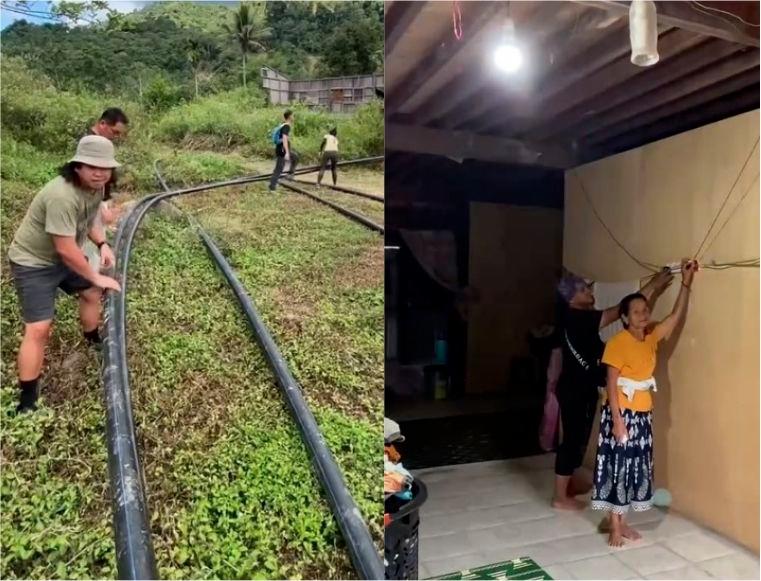KUALA LUMPUR: LightUp Borneo is spearheading micro-hydro projects to address electricity shortages in off-grid villages in East Malaysia and interior Orang Asli villages in Peninsular Malaysia.
The NGO’s national coordinator Ong Boon Keong said the organization focuses on enhancing accessibility, promoting environmental sustainability, and fostering community involvement.
“We have successfully implemented hydroelectric power in some 40 villages over the years, with the significant contribution of nearly 1,000 volunteers, who have participated in various stages of the hydro installation cycles, ranging from promotion to fundraising,” he said.
Operating independently from government agencies, Ong said the NGO derived its resources indirectly from local universities, with funding primarily coming from public appeals and concerned corporations, which have sustained its operations for nearly a decade.
“Despite government efforts, a considerable number of villages in the country still lack electricity, prompting us to adopt a community-driven approach to address the issue. By implementing this initiative, we have transformed previously dim settlements with a newfound vibrancy.”
Explaining the potential of micro-hydropower, Ong said it is one of the simplest and most reliable forms of renewable energy that is available.
“We installed standalone micro-hydro generators that use the force of high-pressure water from rivers. The water flows through large-diameter PVC pipes to rotate turbine wheels and generate electricity ranging between three and 100kW.
“This approach offers a cost-efficient method to deliver electricity and contrasts with the expensive and time-consuming nature of grid-based solutions. It also accelerates electricity coverage and empowers local communities with greater control over their power supply,” he said.
Highlighting the NGO’s approach, NGO stressed that every off-grid village, regardless of its location or size, equally deserves access to electricity, which is prioritized based on the order of applications or approaches, rather than a predetermined criteria.
The success of micro-hydro projects depends on the technical feasibility of the site and its ability to meet users’ needs.
“During the evaluation of villages to be included in the project, we share comprehensive knowledge with the villagers on their potential upon acquiring electricity, its implementation, planning, voluntary labor, hydro capacity, compatible appliances, maintenance requirements and resolution of land ownership issues.
“This approach fosters transparent communication with the communities we aim to help, and facilitates informed decision-making,” he said.
To reduce the financial burden on the villagers, the NGO facilitates fundraising from urban areas to ensure that the adoption of hydro solutions is demand-driven and aligned with their preferences.
Highlighting environmental preservation, Ong said it is the NGO’s core focus to avoid building dams, and encourage villagers to maintain watershed areas and discourage deforestation.
“While the benefits of avoiding dam construction and preserving watershed areas may not always be immediately apparent, they contribute to long-term economic prosperity by ensuring the sustainability of vital natural resources and ecosystem services.
“Encouraging villagers to maintain such watershed areas will create sustainable livelihood opportunities through eco-tourism, promote sustainable forestry practices, and other environmentally friendly activities,” he said.
Ong described the initiative as a beacon of sustainable electrification, empowering communities and fostering environmental stewardship.
He said the NGO welcomes donations and volunteers to expand its project to more villages that are off-grid.
Those keen to help can contact LightUp Borneo at lightupborneo2013@gmail.com or call 013-5900339.









